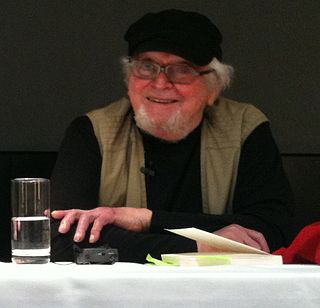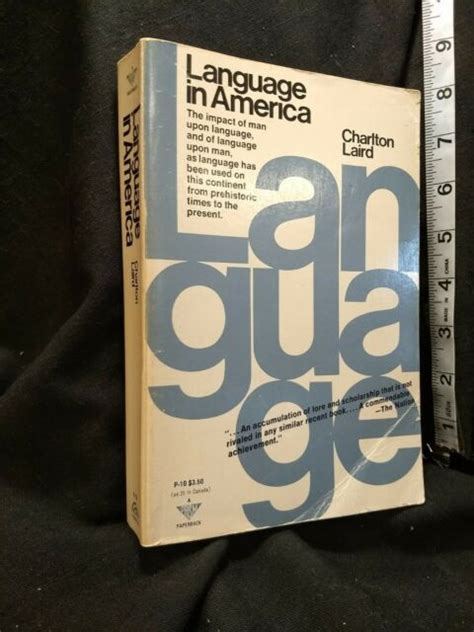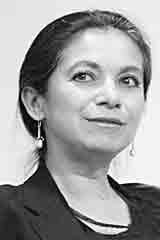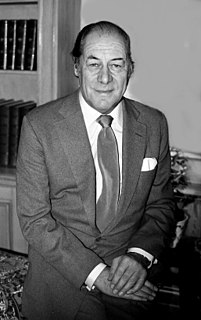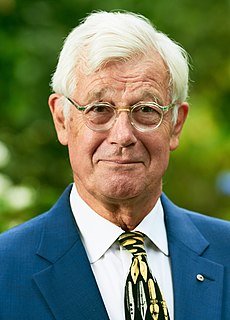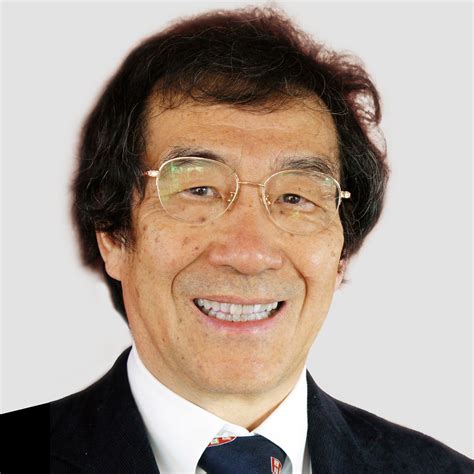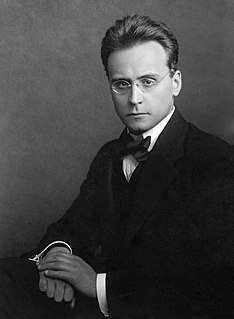Top 1200 Human Language Quotes & Sayings
Explore popular Human Language quotes.
Last updated on April 14, 2025.
Language designers want to design the perfect language. They want to be able to say, 'My language is perfect. It can do everything.' But it's just plain impossible to design a perfect language, because there are two ways to look at a language. One way is by looking at what can be done with that language. The other is by looking at how we feel using that language-how we feel while programming.
In your relationship with God there are also times when you want to say things and you're trying to find the words to express them. In a human relationship sometimes you struggle for words and you've got to do it, but in a relationship with God he can actually give you a language which enables you to communicate. In a relationship with God you feel things and you want to express them and you're not limited by human language. You can express what you really feel in your heart, through a language that he gives you, and that helps you to communicate with God.
All my desires are born of my dreams. And I have proven my love with words. To what fantastic creatures have I entrusted myself, in what dolorous and ravishing world has my imagination enclosed me? I am sure of having been loved in the most mysterious of domains, my own. The language of my love does not belong to human language, my human body does not touch the flesh of my love. My amorous imagination has always been constant and high enough so that nothing could attempt to convince me of error.
We believe we can also show that words do not have exactly the same psychic "weight" depending on whether they belong to the language of reverie or to the language of daylight life-to rested language or language under surveillance-to the language of natural poetry or to the language hammered out by authoritarian prosodies.
UG [universal grammar] may be regarded as a characterization of the genetically determined language faculty. One may think of thisfaculty as a 'language acquisition device,' an innate component of the human mind that yields a particular language through interaction with present experience, a device that converts experience into a system of knowledge attained: knowledge of one or another language.
Being a slow reader would normally be a deficiency; I found a way to make it an asset. I began to sound words and see all those qualities - in a way it made words more precious to me. Since so much of what happens in the world between human beings has to do with the inconsideration of language, with the imprecision of language, with language leaving our mouths unmediated, one thing which was sensuous and visceral led to, in the use of language, a moral gesture. It was about trying to use language to both exemplify and articulate what good is.
For the Amahuaca, the Koyukon, the Apache, and the diverse Aboriginal peoples of Australia - as for numerous other indigenous peoples - the coherence of human language is inseparable from the coherence of the surrounding ecology, from the expressive vitality of the more-than-human terrain. It is the animate earth that speaks; human speech is but a part of that vaster discourse.
We live in a world filled with language. Language imparts identity, meaning, and perspective to our human community. Writers are either polluters or part of the clean-up team. Just as the language of power and greed has the potential to destroy us, the language of reason and empathy has the power to save us. Writers can inspire a kinder, fairer, more beautiful world, or invite selfishness, stereotyping, and violence. Writers can unite people or divide them.
Language is the crowning achievement of human beings, and that is something Muslims have always known and revered. We are a literate people whose miracle is a Book from an unlettered man, peace and blessings be upon him, who was the most articulate and eloquent human being who ever lived. We honor our Prophet, peace and blessings be upon him, in honoring language that he loved so much and used so well.
All the different nations in the world, despite their differences of appearance and religion and language and way of life, still have one thing in common, and that is what's inside of all of us. If we X-rayed the insides of different human beings, we wouldn't be able to tell from those X-rays what the person's language or background or race is.
The Creation speaks a universal language, independent of human speech or human language, multiplied and various as they be. It is an ever-existing original, which every man can read. It cannot be forged; it cannot be counterfeited; it cannot be lost; it cannot be altered; it cannot be suppressed. It does not depend upon the will of man whether it shall be published or not; it publishes itself from one end of the earth to the other. It preaches to all nations and to all worlds; and this Word of God reveals to man all that is necessary for man to know of God.
A woman who utters such disgusting and depressing noise has no right to be anywhere, no right to live. Remember that you are a human being with a soul and the divine gift of articulate speech, that your native language is the language of Shakespeare and Milton and The Bible. Don't sit there crooning like a bilious pigeon.
One of the reasons I love language is that concerning semiotics, language is an arbitrary sign system, which means the signs within it are free-floating, but we put them in a certain order to get them to have meaning for us. If we left them alone, they'd be like water, like the ocean. It would be just this vast field of free-floating matter or signs, so in this way, I think language and water have much in common. It's only us bringing grammar and syntax and diction and the human need for meaning that orders language, hierarchizes it.
Human language has a vocabulary suited to our daily needs and functions: the shape of any human language maps approximately to the needs and activities of our mundane lives. But few would deny that there is another dimension of human existence which transcends the mundane: call it the soul, the spirit: it is that part of the human frame which sees the shimmer of the numinous.
Not bad in short, though the last one [understanding the language of animals], isn't half as useful as you might expect, since when all's said and done the language of the beasts tends to revolve around: a) the endless hunt for food, b) finding a warm bush to sleep in the evening, and c) the sporadic satisfication of certain glands. (Many would argue that the language of human kind boils down to this too)
Mathematics never reveals man to the degree, never expresses him in the way, that any other field of human endeavour does: the extent of the negation of man's corporeal self that mathematics achieves cannot be compared with anything. Whoever is interested in this subject I refer to my articles. Here I will say only that the world injected its patterns into human language at the very inception of that language; mathematics sleeps in every utterance, and can only be discovered, never invented.
This word "LOVE" - discredited, "clicheed" - can be restored and love, the instinct, the impulse to care for somebody in the hope that somebody will care for you - plus our language, the language, a language - is about all we have. With everything else going on, this is what makes us, what keeps us human.
I think that metaphor really is a key to explaining thought and language. The human mind comes equipped with an ability to penetrate the cladding of sensory appearance and discern the abstract construction underneath - not always on demand, and not infallibly, but often enough and insightfully enough to shape the human condition. Our powers of analogy allow us to apply ancient neural structures to newfound subject matter, to discover hidden laws and systems in nature, and not least, to amplify the expressive power of language itself.







